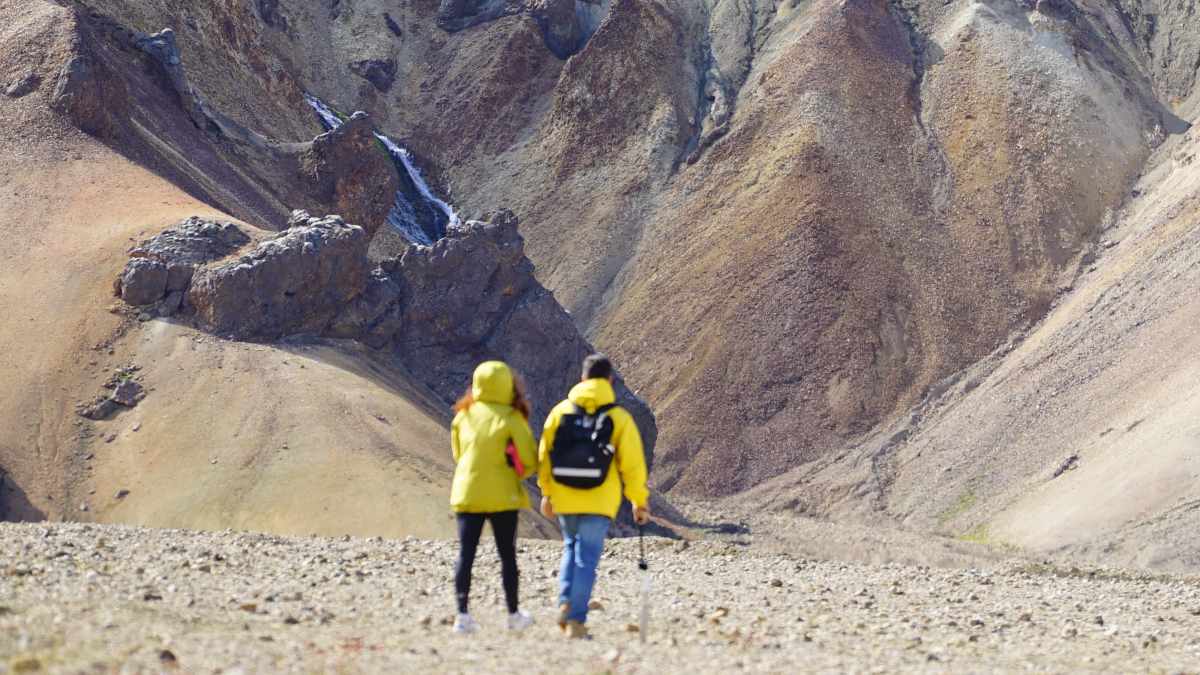
Out Of Inspiration? Look No Further Than This Simple Research-Based Solution
Researcher Tonglin Jiang explains how awe and self-transcendence are key to finding inspiration in life.

By Mark Travers, Ph.D. | September 18, 2023
A recent study published in The Journal of Positive Psychology explored the link between experiencing awe and feeling inspired. The findings indicated that experiencing awe does in fact spark inspiration; the research shows that this awe-inspiration occurs through the experience of self-transcendence.
I recently spoke to Dr. Tonglin Jiang, an assistant professor at the School of Psychological and Cognitive Sciences, and one of the lead authors of the study, Dr. Yuwan Dai. We discussed the link between awe, inspiration, and self-transcendence, as well as how important a change of scenery can be if you're struggling to find inspiration in your life. Here's an overview of our conversation.
What inspired you to investigate the link between awe, inspiration, and self-transcendence?
For two reasons:
- Awe has been suggested as an inspiring emotion theoretically. But when we looked at the actual studies, the results were a bit mixed. Some studies showed a link, but they weren't correlational. Others couldn't say for sure if the feeling of awe was the only reason for the inspiration. So, we felt this was something that needed more looking into.
- In our day-to-day lives, we see that when people feel a deep sense of awe, they often feel motivated to act. But the interesting thing is, they might act in totally different ways. For instance, some might feel so amazed that they start believing in God. On the other hand, that same feeling might push others to dive deep into science and exploration. We think this unique ability of awe to spark different inspiration can help explain why people react in such varied ways.
What methodologies did you use, and what do you consider your most significant finding to be?
We carried out some experiments to see how people act when they feel awe. What we found is pretty interesting! No matter where they're from or how old they are, people tend to feel more inspired when they experience awe. Even if this feeling of awe comes from something scary or threatening, the inspiration is still there. And here's a key point: we made sure that this effect wasn't just because they were out in nature, simply feeling positive, or any other emotions that might come along with awe. It's genuinely the awe itself that does the trick!
Can you give a brief description of what self-transcendence is?
Self-transcendence refers to a mental state characterized by reduced self-salience and intensified connectedness with the surrounding context. In other words, self-transcendence weakens the awareness of the isolated self and heightens the sense of connectedness, blurring self-other boundaries.
Can you talk a little bit about why awe and self-transcendence are so important in the search of inspiration?
When you experience self-transcendence, you're kind of zooming out from just thinking about yourself and feeling more connected to the bigger world around you. You stop being stuck on one viewpoint and start seeing things more broadly.
This shift is crucial for inspiration because when you're not just focused on your own little world, you begin to see things differently. You break away from the usual way you look at things and discover new angles. It's like opening a window in a stuffy room; suddenly, fresh air and new ideas come flowing in!
You mentioned that awe enhances inspiration via self-transcendence by allowing people to connect themselves to the surrounding world and to look at things from new perspectives. Can you expand on that?
Think of awe like a "wow" moment, something that makes your jaw drop and your eyes widen. When you experience this, there's a kind of mental shift that happens.
This "wow" feeling of awe can help you enter a state of self-transcendence, which is like stepping outside of your own bubble. Instead of being trapped in your usual thoughts and routines, you start feeling more connected to everything around you — be it nature, other people, or the universe itself.
Imagine you're inside a small room your whole life, and suddenly, someone opens a door and you see a vast landscape. That's the magic of awe. It helps you move out of your little room and appreciate the grandness of the world.
Now, when you're in this mindset, where you feel part of the bigger picture, it's much easier to see things from new angles. It's like being given a new pair of glasses. You might notice solutions to problems you couldn't solve before, or come up with new, creative ideas. Essentially, by connecting more with the world, your brain starts thinking in fresh, inspired ways.
How does your research connect with and inform other research showing a link between awe and self-transcendence?
Other researchers have always thought that when people feel awe, they're also experiencing a moment of self-transcendence, or that "stepping out of their bubble" feeling. There's quite a bit of solid evidence backing this idea up.
Now, where our research adds something new is in showing what happens next. We discovered that when people have these moments of awe and self-transcendence, they often feel inspired.
What are the practical takeaways from your research for someone struggling to find inspiration in their lives, work, or hobbies?
If you're feeling stuck or just can't find that spark of inspiration, it might be time for a change of scenery. Try to find something amazing or different from your usual routine. It could be watching a breathtaking sunset, exploring a new place, or even just listening to a powerful piece of music.
What you're looking for is something that shakes up your usual way of seeing things. By stepping outside of the familiar, you give your brain a chance to think differently and rediscover that sense of wonder. This fresh perspective might be just what you need to feel inspired again!
